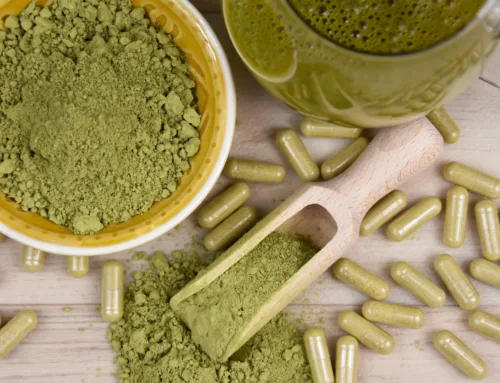What Is Galaxy Gas Used For and Is Galaxy Gas Addictive?
In recent years, a concerning trend has emerged involving the use of Galaxy Gas—a term that refers to an inhalant commonly used recreationally by some individuals. Galaxy Gas, also known as nitrous oxide or “laughing gas,” is a substance that has been historically used for its anesthetic properties in medical and dental settings. However, in certain circles, it’s become a popular substance for recreational use, leading to rising questions about its safety, potential for addiction and long-term effects.
If you’re curious about what Galaxy Gas is used for or wondering if Galaxy Gas is addictive, you’re not alone. In this blog, we’ll explore these important questions and examine the potential risks associated with using nitrous oxide as a recreational substance. It’s critical to understand the dangers involved and how it can impact mental health and well-being, especially for those struggling with addiction.
What Is Galaxy Gas Used For?
Galaxy Gas refers to nitrous oxide, a colorless, odorless gas that has a number of legitimate uses. It’s widely known for its role in medical procedures, particularly in dentistry and anesthesia. Dentists commonly administer nitrous oxide to patients to help relax them during dental work, providing a mild sedative effect that allows them to tolerate procedures more easily.
In addition to dental work, nitrous oxide is also used in hospitals as an anesthetic during surgery, though it is typically combined with other drugs for more potent effects. It is also used in some food processing applications, such as in whipped cream dispensers, where it serves as a propellant.
However, Galaxy Gas has also made its way into the realm of recreational drugs. Some individuals inhale nitrous oxide in an attempt to achieve a short-term high, which is characterized by feelings of euphoria, laughter and light-headedness. When used in this manner, Galaxy Gas is often administered through small canisters (known as “whippets”) or balloons.
The Risks of Using Galaxy Gas Recreationally
While nitrous oxide may seem harmless in small doses, the risks associated with recreational use are significant. When inhaled, Galaxy Gas can cause several physical and psychological effects. Short-term effects include dizziness, a sense of euphoria and impaired coordination. In some cases, users report feeling relaxed and carefree, but these sensations are fleeting and often come with dangerous side effects.
One of the most immediate dangers of inhaling nitrous oxide is the risk of suffocation. When someone inhales large amounts of nitrous oxide without sufficient oxygen, they may lose consciousness or even asphyxiate. This is especially risky when nitrous oxide is used in an uncontrolled or unmonitored environment.
Another concerning risk of Galaxy Gas is the potential for hypoxia (a lack of oxygen), which can lead to brain damage. Inhalation of nitrous oxide can disrupt the body’s normal oxygen supply, causing a person to feel light-headed and disoriented. Prolonged use or repeated exposure can lead to long-term damage to the nervous system and other bodily functions.
Is Galaxy Gas Addictive?
One of the most pressing questions surrounding the recreational use of Galaxy Gas is whether it is addictive. While nitrous oxide is not considered as addictive as other substances such as alcohol or opioids, there is still a potential for dependence with prolonged use.
When individuals repeatedly inhale Galaxy Gas to achieve the euphoric effects, they may start to develop a psychological dependence. They might crave the feelings of relaxation and euphoria that the gas provides and begin to use it more frequently. In these cases, individuals may find it increasingly difficult to stop using nitrous oxide, even when faced with negative consequences.
Additionally, because nitrous oxide is often used in combination with other substances, such as alcohol or marijuana, individuals may increase their overall risk for substance abuse and addiction. This combination can amplify the effects of nitrous oxide, making it even more dangerous and addictive.
The Impact of Galaxy Gas on Mental Health
Repeated use of Galaxy Gas can have significant effects on mental health. While the immediate effects may include euphoria and laughter, the long-term consequences can be more serious. Chronic use can impair cognitive function, leading to memory problems, mood swings and depression.
Because Galaxy Gas alters the brain’s chemistry, it can also contribute to the development of mental health disorders in those predisposed to conditions like anxiety or depression. In some cases, using nitrous oxide as a way to cope with underlying mental health issues can worsen the symptoms, creating a cycle of substance use and emotional distress.
Long-Term Effects of Galaxy Gas Use
In addition to the potential for addiction, the long-term use of Galaxy Gas can have serious physical and neurological consequences. Over time, nitrous oxide can deplete vitamin B12 levels in the body, leading to nerve damage, muscle weakness and, in severe cases, permanent paralysis. The damage to the nervous system can affect motor skills, coordination and speech.
People who use nitrous oxide regularly may also experience memory loss, difficulty concentrating and impaired judgment. These cognitive deficits can interfere with daily functioning and quality of life.
Seek Professional Help
While Galaxy Gas may be used medically in controlled environments, its recreational use carries significant risks. From the potential for suffocation and brain damage to the possibility of developing a psychological dependence, nitrous oxide poses several dangers that should not be ignored. The short-lived high it provides is often not worth the long-term damage it can cause, especially in individuals prone to mental health issues or addiction.
If you or someone you know is struggling with Galaxy Gas or any other substance use, it’s important to seek help from a medical professional or addiction treatment center. Education and awareness about the risks associated with inhalants like Galaxy Gas can play a crucial role in preventing misuse and promoting healthier coping mechanisms.





